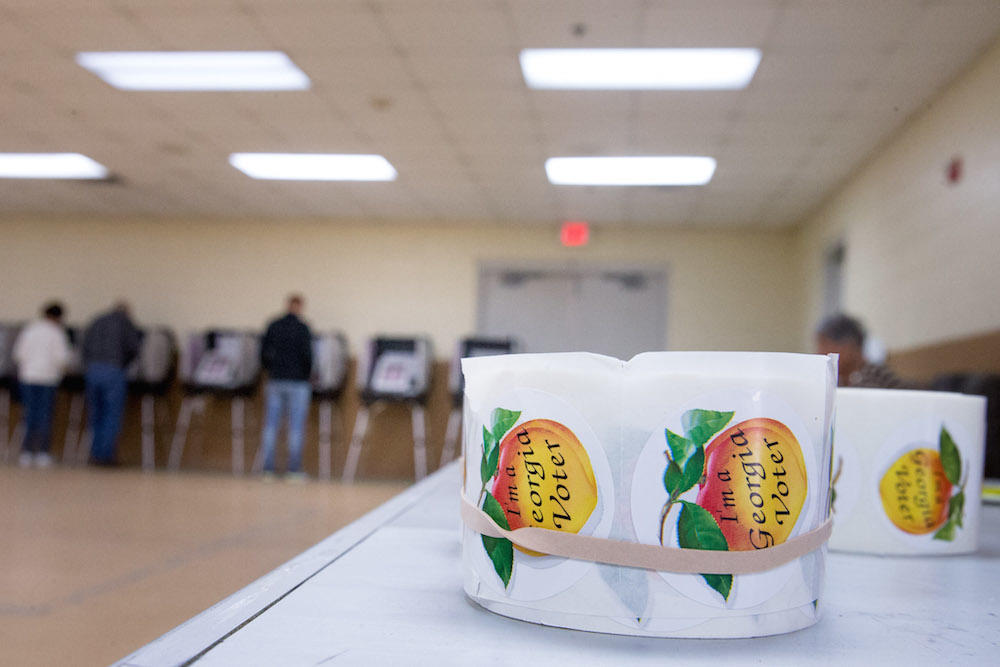Section Branding
Header Content
Black Georgia Lawmakers Blast Trump Panel On Voting Fraud
Primary Content
Black lawmakers in Georgia blasted President Donald Trump's election fraud commission for requesting extensive personal voter information Thursday, accusing the administration of trying to scare people away from voting.
Members of Georgia's Legislative Black Caucus, all Democrats in the General Assembly, said there's no logical reason the federal government would ask states for the information. They said releasing it would violate voters' privacy.
The commission asked every state for publicly available information on all voters including names, party affiliations, addresses, voting histories, felony convictions, military service and the last four digits of Social Security numbers.
Other lawmakers said the panel's true intent is to lower voter turnout; state Rep. Roger Bruce of Atlanta said it recalls Southern states' history of suppressing black voters using so-called literacy tests before passage of the Voting Rights Act.
"Let's call it the way we see it," Bruce said. "So far, this president and this administration have not told the truth about anything."
The office of Georgia's Republican Secretary of State, Brian Kemp, has said it will provide the commission with a copy of the state's registered voter file, which is permitted by state law. Kemp's office told the commission in a letter this week that the file costs $250, the same charge for members of the public who request a copy.
But state law prevents the agency from releasing voters' birthday or month, Social Security or driver's license numbers or the location where someone votes.
The Associated Press has found that no state so far plans to provide all the information requested by the commission.
The AP's review has found that 26 states have said they will provide the commission with some information, but that parts of what was requested are not considered public information. Laws vary widely on what personal information states can release.
The AP's review found that 14 states and Washington, D.C., have said they won't comply at all.
Kris Kobach, the vice chair of the Presidential Advisory Commission on Election Integrity, said in a statement Wednesday that the commission will "gather the facts through public records requests to ensure the integrity of each American's vote because the public has a right to know."

